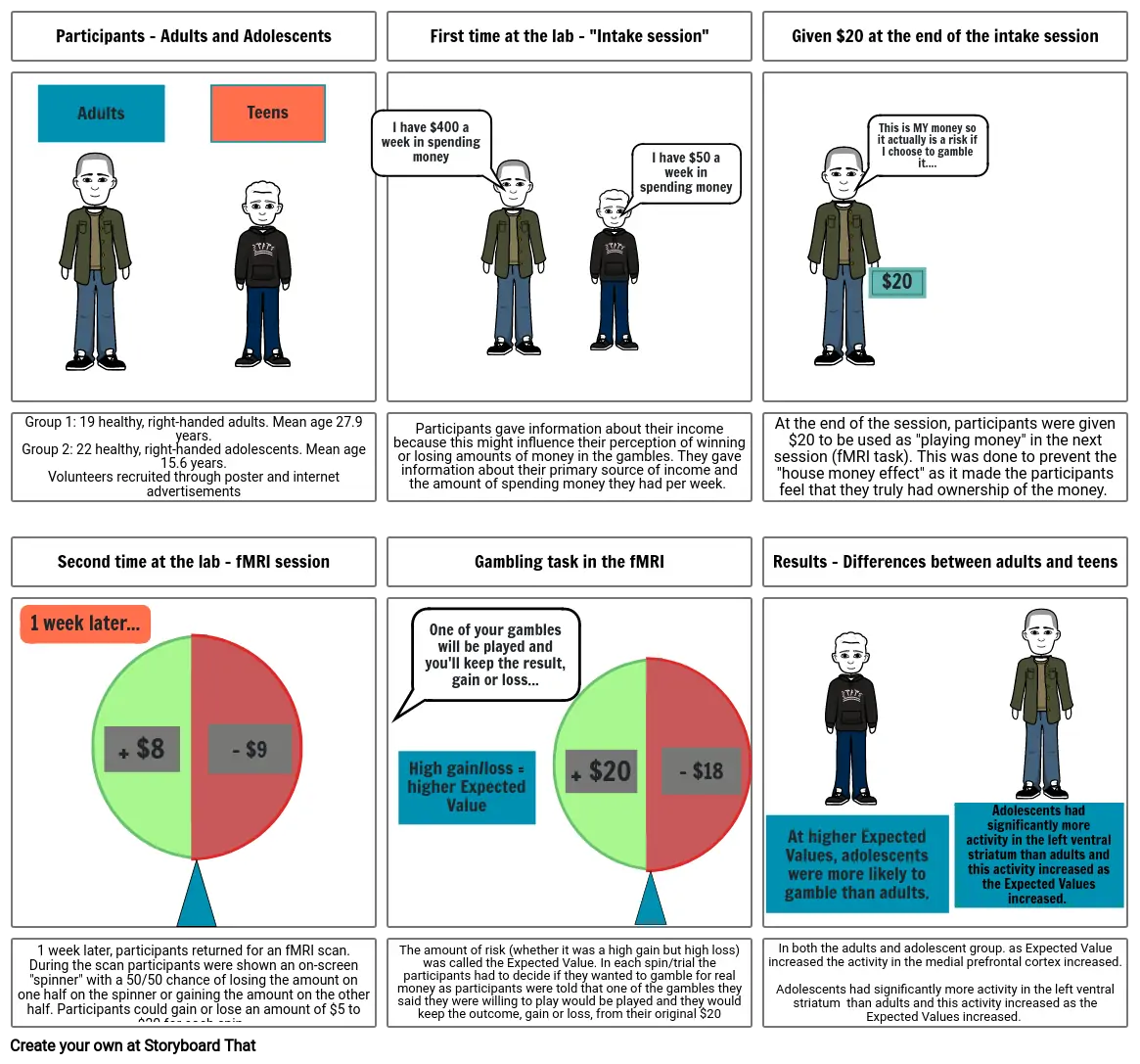Key Research: Barkley-Levenson and Galvàn

Storyboard Text
- Participants - Adults and Adolescents
- Adults
- Teens
- I have $400 a week in spending money
- First time at the lab - "Intake session"
- I have $50 a week in spending money
- Given $20 at the end of the intake session
- This is MY money so it actually is a risk if I choose to gamble it....
- $20
- Group 1: 19 healthy, right-handed adults. Mean age 27.9 years.Group 2: 22 healthy, right-handed adolescents. Mean age 15.6 years.Volunteers recruited through poster and internet advertisements
- Second time at the lab - fMRI session
- 1 week later...
-
-
- Participants gave information about their income because this might influence their perception of winning or losing amounts of money in the gambles. They gave information about their primary source of income and the amount of spending money they had per week.
- Gambling task in the fMRI
- One of your gambles will be played and you'll keep the result, gain or loss...
-
-
- At the end of the session, participants were given $20 to be used as "playing money" in the next session (fMRI task). This was done to prevent the "house money effect" as it made the participants feel that they truly had ownership of the money.
- Results - Differences between adults and teens
- 1 week later, participants returned for an fMRI scan. During the scan participants were shown an on-screen "spinner" with a 50/50 chance of losing the amount on one half on the spinner or gaining the amount on the other half. Participants could gain or lose an amount of $5 to $20 for each spin.
- + $8
- - $9
- The amount of risk (whether it was a high gain but high loss) was called the Expected Value. In each spin/trial the participants had to decide if they wanted to gamble for real money as participants were told that one of the gambles they said they were willing to play would be played and they would keep the outcome, gain or loss, from their original $20
- High gain/loss = higher Expected Value
- + $20
- - $18
- In both the adults and adolescent group. as Expected Value increased the activity in the medial prefrontal cortex increased. Adolescents had significantly more activity in the left ventral striatum than adults and this activity increased as the Expected Values increased.
- At higher Expected Values, adolescents were more likely to gamble than adults.
- Adolescents had significantly more activity in the left ventral striatum than adults and this activity increased as the Expected Values increased.
Over 30 Million Storyboards Created

